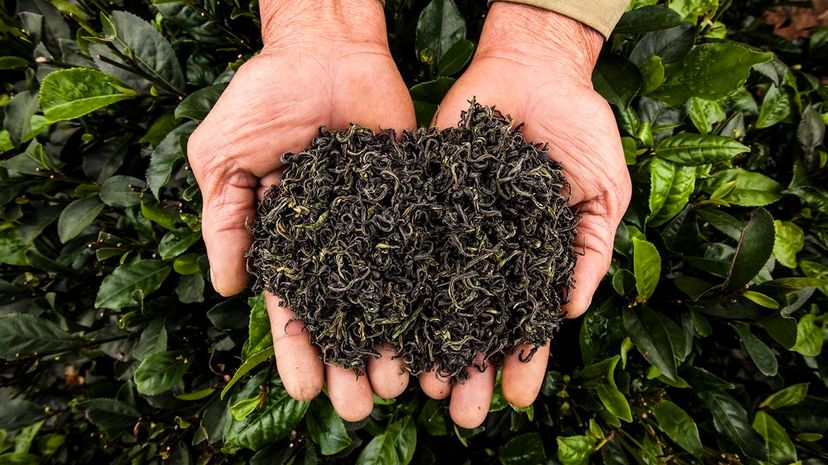
Unless you've been living off the grid, you're probably well-aware of the health benefits of green tea. The pale brew is full of antioxidants that may help lower the risk of stroke or stave off certain types of cancer, so sip away! Be warned, though, drinking too much green tea has a definite downside — it can make you see ghostly figures that aren't really there.
This may sound far-fetched, but the rumor that green tea causes hallucinations is an enduring one. As Robert Lamb and Christian Sager, hosts of this Stuff to Blow Your Mind podcast explain, green tea has a racy reputation that isn't nearly as mild as its taste.
Advertisement
The idea that green tea can cause hallucinations seems to originate in the Victorian era. At the time, the Lancet medical journal published a study noting the negative effects of green tea, including stomach problems and fluttering of the heart, citing a woman profiled in a Scottish medical journal who became hysterical after drinking green tea on an empty stomach. (Incidentally, physicians calmed her by administering opium.)
To further cement green tea's reputation, author Sheridan Le Fanu — an Irish mystery writer whose 1872 collection of tales featured the aptly named "Green Tea" — latched onto this idea and used it in the short story that captured the public's imagination.
Le Fanu's "Green Tea" takes place in the early 1800s and recounts the plight of one Mr. Jennings, a clergyman who sees the evil spirit of a monkey and turns to his doctor for help. His doctor rejects the idea that something supernatural is happening, and after discovering that Jennings drinks green tea before bed, the doctor claims the green tea is to blame. The doctor contends the green tea has built up in Jennings' body and is affecting his central nervous system, causing him to hallucinate.
While the story's scientific explanation that green tea builds up in the body is false, it didn't seem completely implausible. After all, drinking too much of some substances — like beer or alcohol — can cause both temporary and permanent issues with reality perception.

And there's another crucial kernel of truth. In the 1870s, green tea was an imported, expensive delicacy. So to increase its quantity and its shelf-life, purveyors added a variety of other things to the tea leaves, ranging from iron filings to plants like hazelwood or hawthorn. They also supplemented green tea's color by adding dye, in the form of natural additives like sheep dung and chemical colorants like Prussian blue.
In fact, green tea's identity and flavor had become so muddled and diluted that when tea merchants attempted to sell pure green tea free from fillers, people didn't believe it was actually green tea and refused to buy it.
Strange additives aside, regular amounts of green tea do not cause hallucinations — unless you drink an inordinate amount of it. One 2009 study from La Trobe University tested people drinking various doses of caffeine and measured how much it would take to actually hallucinate. Participants who drank nine cups of green tea or three cups of coffee were three times more likely to hear voices and see objects that were not there. So, while it's technically possible to hallucinate by ingesting massive amounts of caffeine via green tea, it would require a great deal of the beverage — and it wouldn't build up in one's system to have a cumulative effect, either.
So evil monkeys aside, green tea is good for you — in moderation.
Advertisement

